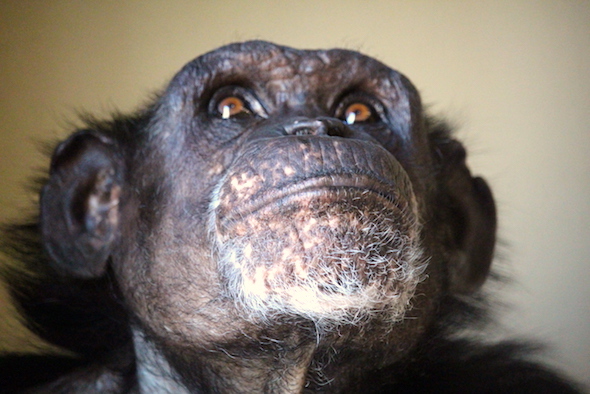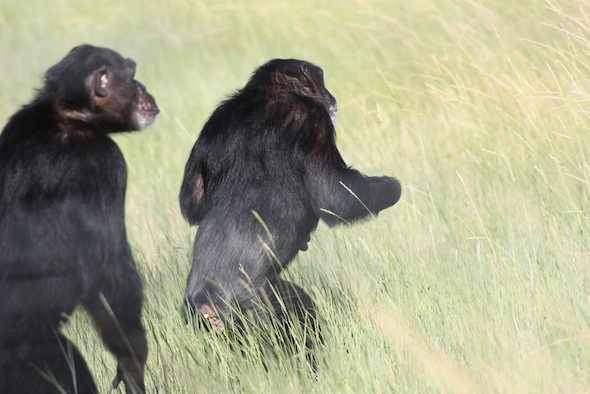Most people accept that chimpanzees are intelligent, but can they read minds? Not in a Carnac the Magnificent kind of way, but rather, do they know what other chimpanzees may or may not know? Can they take the perspective of another individual and alter their behavior accordingly? In other words, do they have what’s known as a Theory of Mind?
If you spend time around chimps you probably wouldn’t doubt for a second that they do. But one of the roles of science is to challenge our casual assumptions and force us to abandon complex explanations when simpler ones will do. For years, scientists tried to determine whether chimps were truly capable of acting on knowledge of other individuals’ mental states. They ran experiments in behavioral laboratories to try to tease out the answers. For example, would chimpanzees understand that a blindfolded researcher was incapable of telling them where food was hidden because she could not see it being hidden? The results were often inconclusive and it’s not hard to understand why. How often does someone sit blindfolded in a chair in front of you while someone else hides food around the building? What a strange thing to do. And since humans are always in cahoots anyway, who’s to say they didn’t know where the food would be before putting the blindfold on? If the chimpanzees could read minds, they’d probably wonder how we lost ours.
Field experiments offer an alternative to the more contrived situations found in the lab. Recently, a group of researchers studied how wild chimpanzees in Uganda change their alarm calls based on whether they think those around them are aware of the threat or not (read a summary here, or go here for the full article). Not surprisingly, chimps that heard a resting call from a hidden loudspeaker prior to discovering an artificial snake on a trail made a greater effort to alert those around them than when they heard alarm calls from the same speaker. They assumed that other chimps would not make resting calls if they were aware of the snake, and as a result they issued more alarm calls and stayed longer by the snake to point out the threat to those who needed to be informed.
In others words, the chimps’ responses to the sight of a snake were not simply reflexive, the way we might scream when startled. Rather, they were calculated in such a way as to ensure that critical information was given to those who needed it. From one mind to another.
I have to admit that I do wonder about the ethics of exposing wild chimpanzees to fake snakes and recorded calls, and a quick check-in with a trusted friend in the field confirmed that these experiments can have a negative impact if not done correctly. You certainly wouldn’t want to desensitize wild chimpanzees to snakes or fill them with the fear that snakes suddenly lurk around every corner.
I mention all this because a) it’s in the news, b) it’s interesting, even if you already assumed that chimps had this ability, but most importantly, c) it’s a great excuse to update our compilation of chimps reacting to snakes as CSNW:






